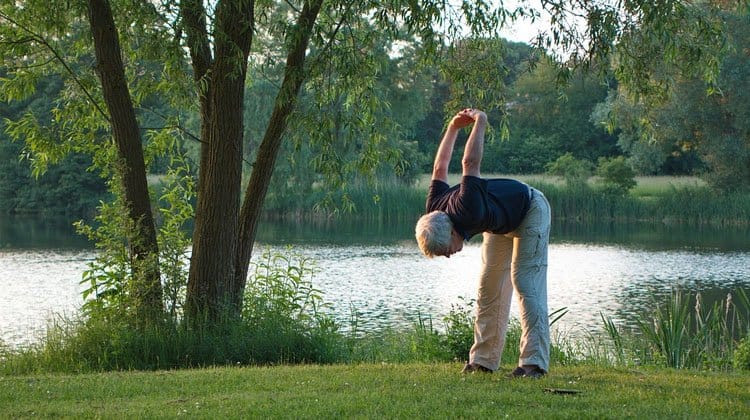Exercise is important throughout our life, but it can become more of a challenge as we get older. Yet those over 70 should look to get in the region of 20 minutes of moderate to vigorous exercise each day as this brings many benefits that help steer you into your 80s, enjoying better health.
How much is enough?
If you are already active then look to do 75 minutes of vigorous activity and be physically active every day. If you are new to physical activity then look to do 150 minutes of moderate intensity activity and build up gradually and safely. In particular, 20 minutes a day of moderate to vigorous exercise can see you ward off heart disease and reduce the risk of strokes, and the good news is it’s never too late to start.

Physical activity that improves balance, strength, and flexibility should also form some of the exercises taken on around 2 days a week. Exercises that improve balance and limb strength will help you feel stronger and more confident on your feet and, therefore, less likely to fall.
Activity levels that matter
If walking at pace is something you cannot do, look for ways to exercise while holding onto something for support (perhaps your live in carer?) or perhaps go for a gentle swim. Moderate intensity levels leave you able to talk but not with enough breath to sing. Even things such as pushing a lawnmower, a water aerobics class, or a game of doubles tennis counts as moderate activity.
Light activity includes getting up and making a hot drink, walking at a slow pace, making the bed or vacuuming. You should look to have some of these activities to reduce your time spent sitting and help build up your ability to include some moderate-intensity activity that will benefit your heart over time.
Vigorous activity includes aerobics, dancing for fitness, or running even as a beginner. Just 75 minutes can equate to 150 minutes of moderate exercise, but ensure that you are already working at that level or build up to it over time if you are new to it.
Muscle strengthening
Muscle strengthening is also important, and many strengthening exercises can be done at home without specialist equipment. Carrying heavy shopping bags, lifting weights (can be a bean can!), working with resistance bands or digging the garden will help you build muscle strength. Once you have done this for a while you may find you are able to take on more significant physical activity and aerobic exercise.
If you aren’t one for classic exercises, consider dancing along to upbeat music from your chair if you are unsafe to do so standing. Movement should look to increase your heart rate from its normal resting state and make you breathless (it need not involve a gym membership or pounding the streets around your home), which is essential for those over 70 to remember and not feel unable to join in.
What if I lack mobility?
If you have mobility issues, it would be a good idea to ask whoever provides your care at home to arrange a talk with a physiotherapist before embarking on exercise. They may be able to come up with a tailored programme that offers health benefits while taking into account what you might struggle with. After all, any exercise can give a boost to not only your physical health, but your mental health too. By adopting a simple exercise programme, you could age more happily and healthily.

